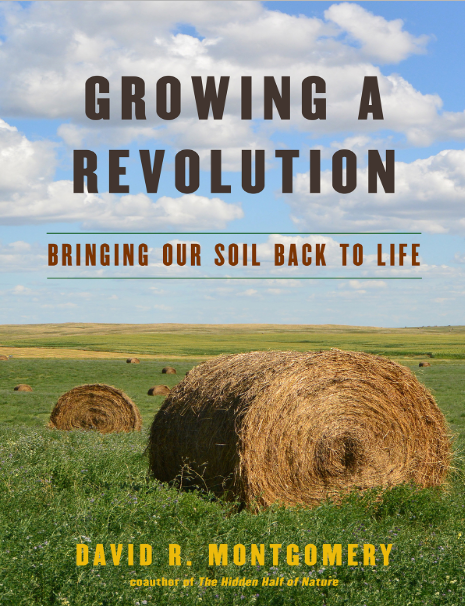Newly released
This book is new and will be uploaded as soon as it becomes available to us and if we secure the necessary publishing rights.

Growing a Revolution: Bringing Our Soil Back to Life Book PDF
(0)
Author:
David MontgomeryNumber Of Reads:
61
Language:
English
Category:
Natural ScienceSection:
Pages:
314
Quality:
excellent
Views:
775
Quate
Review
Save
Share
Book Description
Growing a Revolution draws on visits to farms in the industrialized world and developing world to show that a new combination of farming practices can deliver innovative, cost-effective solutions to problems farmers face today. Montgomery explores why practices based on the principles of conservation agriculture help restore soil health and fertility. In addition, he discusses how these practices translate into farms that use less water, generate less pollution, and lower carbon emissions. Combining ancient wisdom with modern science, Growing a Revolution lays out a solid case for an inspiring vision where agriculture becomes the solution to environmental problems.
This book is the story of my journey to meet these farmers and learn how they build fertile soil as an integral part of how they farm. But there’s more to this new breed of regenerative farmer. The secret to their success is that they are also maintaining or increasing their yields and increasing their profits. The extra money in their pockets comes from spending less on fossil fuels and agrochemicals. They replace these costly inputs with practices that cultivate diverse communities of soil life that efficiently deliver nutrients, minerals, and other compounds that crops need to grow while fending off pests and pathogens.
David Montgomery
David Montgomery is a Professor of Earth and Space Sciences at the University of Washington in Seattle, where he is a member of the Quaternary Research Center.
Montgomery received his B.S. in geology from Stanford University in 1984, and his Ph.D. in geomorphology from University of California, Berkeley in 1991. His research addresses the evolution of topography and the influence of geomorphological processes on ecosystems and human societies. His published work includes studies of the role of topsoil in human civilization, the evolution and near-extirpation of salmon, geomorphological processes in mountain drainage basins, the evolution of mountain ranges, and the use of digital topography. He has conducted field research in eastern Tibet, South America, the Philippines, Alaska, and the American Pacific Northwest.
Book Currently Unavailable
This book is currently unavailable for publication. We obtained it under a Creative Commons license, but the author or publisher has not granted permission to publish it.
Rate Now
5 Stars
4 Stars
3 Stars
2 Stars
1 Stars
Growing a Revolution: Bringing Our Soil Back to Life Quotes
Top Rated
Latest
Quate
Be the first to leave a quote and earn 10 points
instead of 3
Comments
Be the first to leave a comment and earn 5 points
instead of 3